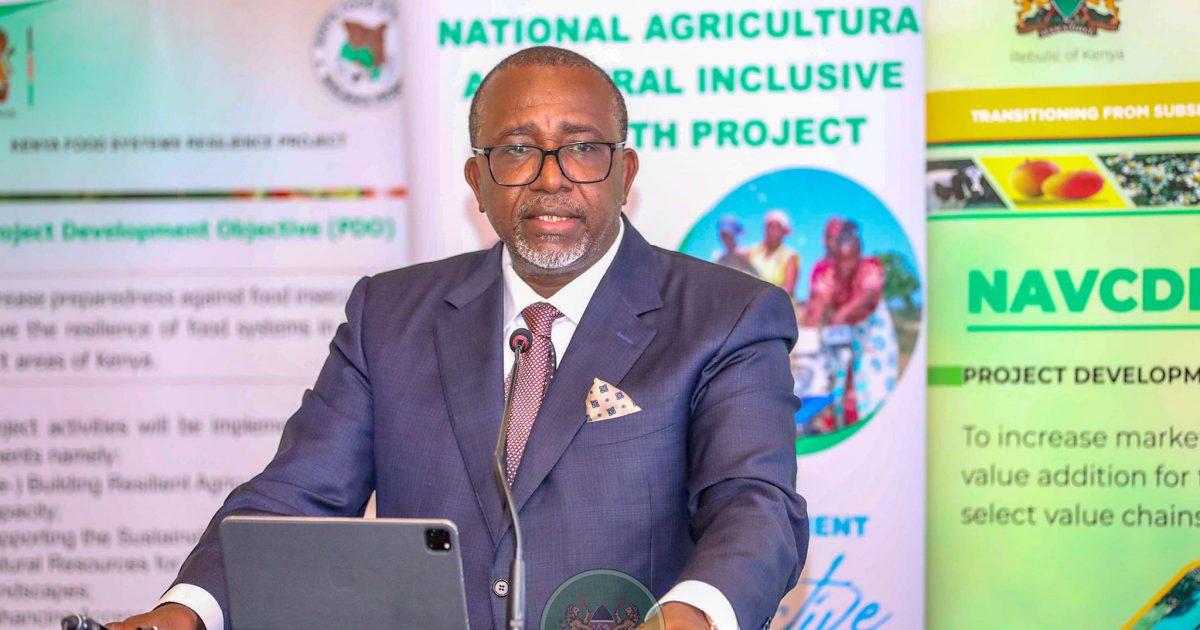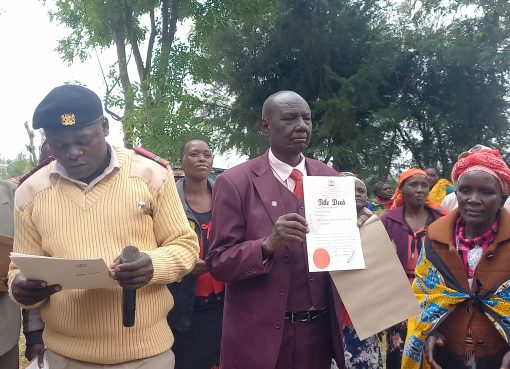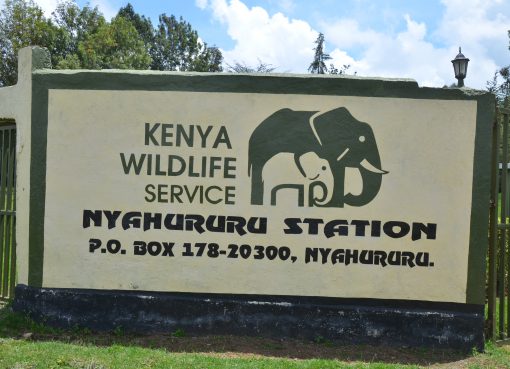The Ministry of Agriculture has launched four agricultural sub-sector policies that are intended to address critical constraints to the agriculture sector’s performance.
Agriculture Cabinet Secretary (CS) Mithika Linturi said that four subsector policies—the Kenya Agricultural Extension Policy, (KASEP) 2023; the National Agricultural Insurance Policy (2023; the Phytosanitary Policy (2023); and the National Agricultural Mechanisation Policy (2024)—are significant progress in establishing the macro-economic foundations necessary for agricultural transformation and growth.
Speaking at a Nairobi hotel on Wednesday during the launch of the policies, Linturi said that transforming and growing the agricultural sector requires the development and implementation of sound policies and strategies targeted at solidifying these economic foundations.
Linturi said that these policies and strategies should focus on approaches that reduce the country’s reliance on food imports through enhancing farm productivity, creating a better environment for private investment, promoting value-added agro-based products, and improving markets for Kenya’s produce both in the domestic and external markets.
The CS said that the Kenya Agricultural Extension Policy (KASEP) 2023) will play a pivotal role in revitalising the provision of extension and advisory services across the county, which are critical for improved agricultural productivity and overall development of the sector.
“A well-functioning agricultural extension service operated by the public and private sectors is one of the critical inputs required for increased agricultural productivity to transform subsistence farming into a vibrant, commercial, and modern farming, attain food security, improve incomes, and create wealth and employment opportunities,” said Linturi.
The CS highlighted that adequate and efficient delivery of extension and advisory services remains challenging. This has been primarily as a result of limited allocation of resources and funding for personnel, training, transportation, and physical and soft infrastructure, including ICT.
“As a result, many farmers and other value chain actors do not receive the support and information they need to guide investments in agriculture and enhance their agricultural practices and productivity,” said Linturi.
He explained that this policy intends to address effectiveness and efficiency in extension service delivery through measures that include enhancing capacity for extension through human resource management and development, infrastructure for extension, and funding; establishing an integrated knowledge management system; improving research-extension and clientele linkages; improving coordination and enhancing partnerships and collaboration in extension service provision;
“In addition, the policy establishes frameworks for quality assurance for extension and advisory service providers and provides guidelines on extension approaches and methods to be used,” said Linturi.
The CS highlighted that the National Agricultural Mechanisation Policy, 2024, will address bottlenecks in mechanisation, which is one of the major agricultural production inputs and a catalyst for rural development.
Linturi said that application of mechanised systems increases power to agriculture and enhances productivity of human labour.
“Despite mechanisation being vital for agricultural production, most farming communities lack machines to undertake their operations efficiently and effectively. Currently the use of motorised power stands at 30 per cent, hand and animal draught power (ADP) at 50 per cent and 20 per cent respectively,” explained the CS.
He explained that the Agricultural Mechanisation Policy sets out goals and directions for present and future development and management of mechanisation in the country.
“The policy intends to create an enabling environment for mechanisation development; build capacity for training, research, and technology development; and promote adoption of mechanisation for increased productivity and provide quality assurance,” said Linturi.
He added that the policy aims at giving a clear direction for sustainable growth and development of the agricultural mechanisation sub-sector.
“It is expected that the implementation of this policy will result in an enabling environment for a vibrant agricultural mechanisation industry able to support the realisation of increased productivity, food security, income, and environmental sustainability,” said Linturi.
By Joseph Ng’ang’a




